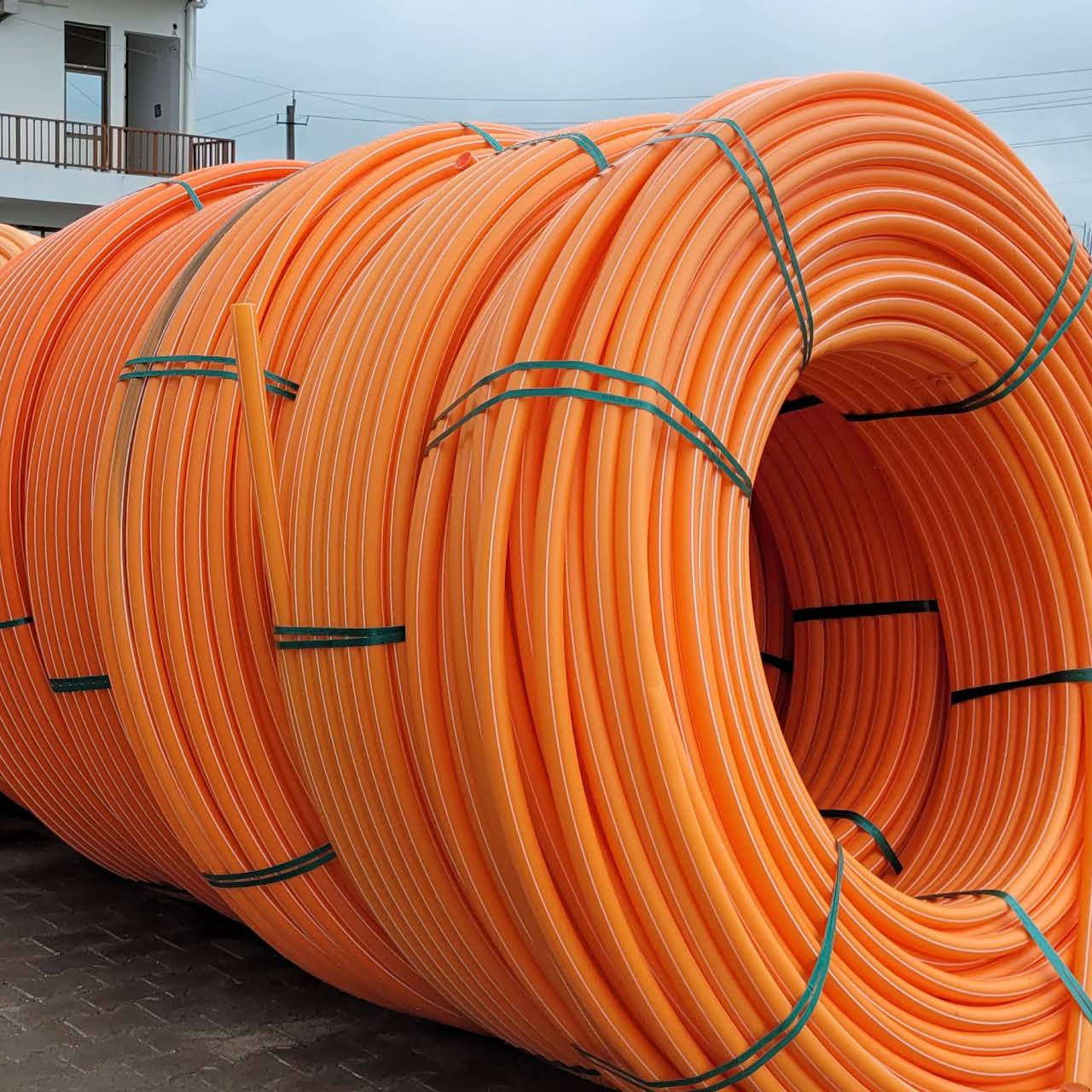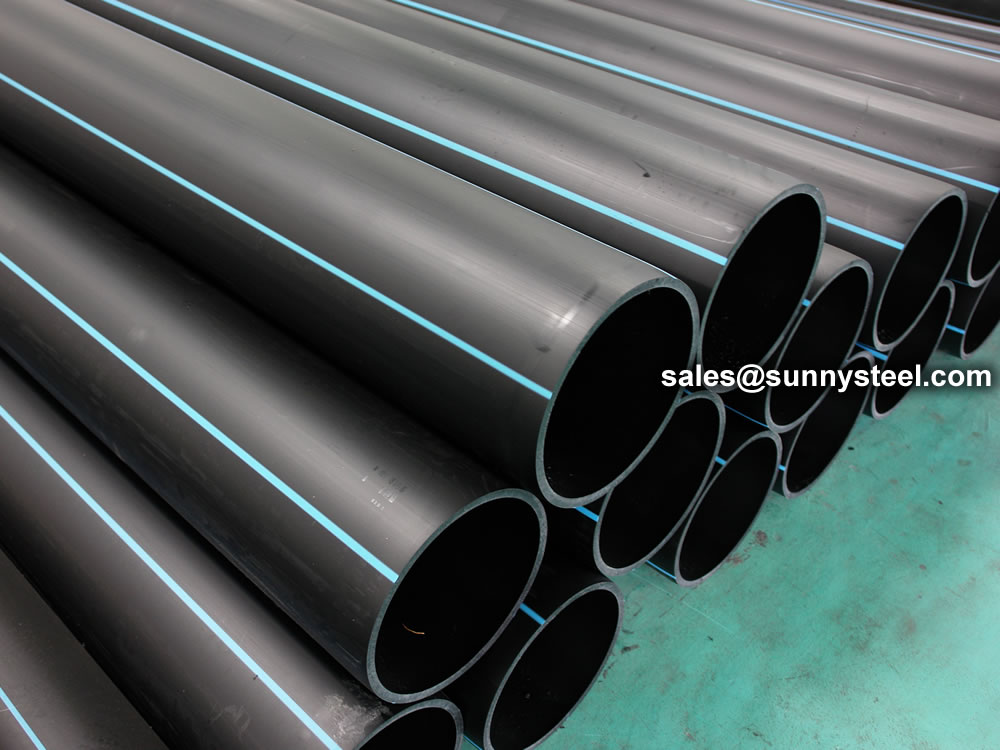A Comprehensive Overview to the Numerous Uses HDPE Pipe in Building and Industry
HDPE pipes have become a crucial element in contemporary construction and industrial applications. Their one-of-a-kind buildings, such as resistance to corrosion and light-weight layout, make them ideal for a large range of uses. From supply of water systems to farming irrigation, HDPE pipes supply remedies that boost performance and sustainability. Comprehending their varied applications is necessary for experts wanting to maximize framework. What details advantages do these pipes bring to each sector?
Water System and Distribution Solutions
Water system and distribution systems are important parts of metropolitan facilities, often depending on high-density polyethylene (HDPE) pipelines for their longevity and efficiency. These systems transport drinkable water from therapy centers to consumers, making sure availability and safety. HDPE pipes are preferred for their resistance to deterioration, chemicals, and severe temperatures, which enhances their durability and reduces maintenance expenses. In addition, their lightweight nature permits for less complicated installment and transportation, making them excellent for different metropolitan and rural applications.
The flexibility of HDPE pipelines enables them to be mounted in limited areas and around barriers, lessening the need for extensive excavation (American Plastics HDPE Pipe Manufacturing). Their smooth interior surface area minimizes friction losses, boosting water flow rates. As cities continue to grow, the need for dependable water system systems enhances, positioning HDPE pipelines as a lasting remedy for contemporary infrastructure tasks. Their tried and tested record makes them a preferred selection amongst designers and metropolitan organizers alike
Wastewater Management and Therapy
Reliable wastewater monitoring and treatment are crucial for keeping public health and environmental high quality. HDPE pipes play an important role in this procedure due to their longevity, resistance to deterioration, and ability to stand up to extreme chemicals. These pipelines are typically used in different applications, including sewer systems, stormwater drain, and wastewater treatment facilities. Their light-weight nature facilitates less complicated installation and transportation, lowering labor expenses and time.
On top of that, HDPE pipes have a smooth indoor surface that minimizes rubbing loss, advertising reliable circulation rates. They are additionally much less susceptible to leaks and failings compared to conventional materials, making certain that contaminants are consisted of successfully. Their versatility allows for flexibility in numerous soil conditions, making them appropriate for varied environmental setups. As markets increasingly focus on sustainable techniques, making use of HDPE pipelines in wastewater monitoring systems lines up with objectives for lowering environmental impact and boosting source healing.
Agricultural Watering Solutions
In farming setups, effective watering services are important for enhancing crop returns and handling water sources. HDPE (High-Density Polyethylene) pipelines play a crucial duty in modern irrigation systems as a result of their toughness, versatility, and resistance to deterioration. Their ability to hold up against high pressures makes them ideal for both surface area and subsurface watering applications, guaranteeing consistent water distribution across fields.
Farmers can utilize HDPE pipelines in drip irrigation systems, which provide water directly to plant roots, reducing wastefulness and advertising healthy development. Furthermore, these pipes are light-weight and very easy to mount, decreasing labor prices and installation time. Their long lifespan and reduced upkeep demands further enhance their allure in farming practices.
HDPE pipelines are ecologically friendly, as they can be recycled and do not seep damaging chemicals into the dirt. This makes them a lasting choice for farmers intending to adopt environmentally friendly agricultural methods while taking full advantage of productivity.
Industrial Applications and Procedures
Flexibility is a trademark of HDPE pipes, making them crucial in click here for more numerous industrial applications and procedures. These pipes are widely utilized in chemical handling industries due to their superb resistance to a large variety of corrosive substances. HDPE's lightweight nature, combined with high tensile stamina, permits for easy installment and lasting efficiency popular atmospheres.
In the oil and gas industry, HDPE pipes play a crucial duty in transporting hydrocarbons and gases, many thanks to their sturdiness and adaptability - hdpe pipe fittings Midland TX. Furthermore, they are employed in mining procedures for the transportation of slurry and various other products, where standard piping systems might fall short
Additionally, HDPE pipes are increasingly made use of in manufacturing facilities for water system lines and wastewater monitoring. Their capacity to stand up to severe temperature levels and stress makes them appropriate for a variety of commercial procedures. Overall, HDPE pipelines contribute greatly to effectiveness and safety and security throughout diverse industrial applications.
Stormwater Monitoring and Water Drainage Solutions
Stormwater monitoring and drain systems are crucial parts in urban infrastructure, developed to manage excess rainfall and minimize flooding risks. High-density polyethylene (HDPE) pipes are significantly utilized in these systems as a result of their sturdiness, adaptability, this contact form and resistance to deterioration. These pipes successfully carry stormwater far from inhabited areas, decreasing surface area overflow and preventing waterlogging.
HDPE's lightweight nature facilitates easier installment, minimizing labor prices and building and construction time. Additionally, its resistance to chemicals and ecological stressors assurances durability and reliability in different environments. Along with standard drain applications, HDPE pipes are also used in innovative solutions such as green framework, that includes rainfall yards and absorptive pavements.

Regularly Asked Questions
How Does HDPE Pipe Contrast to PVC Pipeline in Price?
In basic, HDPE pipe tends to be a lot more expensive than PVC pipeline due to its boosted resilience and adaptability. Lasting price considerations, such as upkeep and life expectancy, might prefer HDPE in details applications.
What Is the Life Expectancy of HDPE Water Lines Under Varying Conditions?
HDPE pipelines typically have a lifespan of 50 to 100 years, depending on environmental problems, installment techniques, and use. Elements such as temperature, dirt kind, and direct exposure to chemicals can significantly affect their longevity.
Can HDPE Pipes Be Recycled After Usage?
Yes, HDPE pipelines can be recycled after usage. The reusing procedure includes melting down the material, permitting it to be repurposed into new items, thus promoting sustainability and reducing environmental influence connected with plastic waste.
Exist Any Type Of Details Installment Difficulties With HDPE Pipes?
Installment difficulties with HDPE pipes include correct jointing browse around this site strategies, making certain ample trench problems, and taking care of thermal growth. Additionally, competent labor is needed to take care of customized devices, which can complicate the installment process in numerous environments.

What Certifications Should I Search For When Purchasing HDPE Pipes?
When purchasing HDPE pipes, one should look for certifications such as ASTM, AASHTO, and ISO, which verify high quality and compliance with industry criteria, assuring durability and performance in different applications. - hdpe pipe suppliers Midland TX